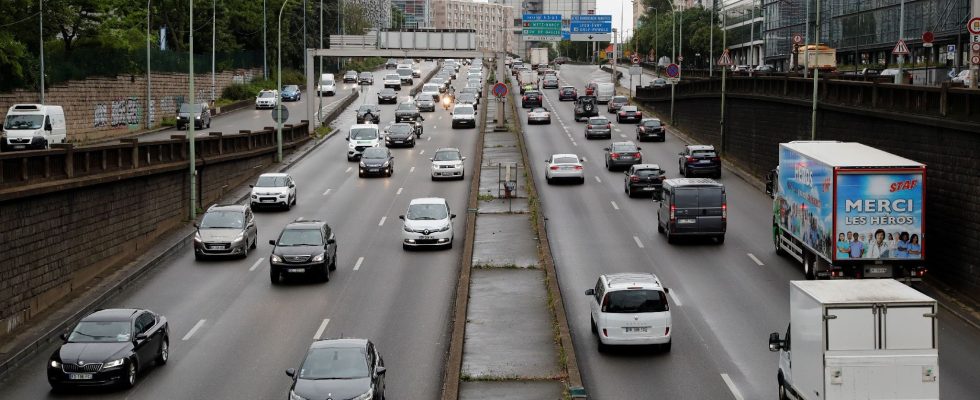The exchange of arms continues between the Paris town hall and the government around the Paris ring road. While the Paris town hall had announced at the end of November that it would lower the speed on the main Paris ring road from 70 to 50 km/h from the end of 2024, the government affirmed this Thursday, December 7 that it would oppose it in the short term. term.
It was the Minister of Transport Clément Beaune who reignited the fuse, affirming that the State will not “validate” the lowering of the speed on the 35 kilometer ring wanted by the Paris town hall after the Olympic Games. “I think it’s not a good idea in the short term to have this speed limit,” he said. on Franceinfo, highlighting that he simultaneously supported the town hall’s proposal to reserve a carpool lane on the ring road. “If you do the reserved lane and the ring road at 50 km/h at the same time, you will drive people crazy,” assured the Minister of Transport.
“I confirm that we will lower the speed”
The Paris town hall was quick to react to the minister’s comments, ensuring that it did not want to make an about-face. “I confirm to you that we will lower the speed,” confirmed the first deputy Emmanuel Grégoire during a press conference, who assured that a mayor has the power to make such a decision when it is justified by “environmental issues “.
According to the town hall, this measure aims in particular to reduce pollution and noise pollution, particularly at night for the 500,000 people who live in the immediate vicinity of this axis, often in working-class neighborhoods.
If the minister “intends to obstruct” the town hall project, “let him tell us how he intends to do it”, added Emmanuel Grégoire, criticizing Clément Beaune for a “purely political posture which is not based on anything”. Comments echoed by Fatoumata Koné, head of elected environmentalists in Paris. For her, Clément Beaune, “candidate for mayor of Paris”, prefers to “twist the arm of the City of Paris” rather than defend a “real social measure”.
For their part, Parisian right-wing elected officials, through senator Agnès Evren on, welcomed “having been heard” by the Minister of Transport. The regional president (LR) Valérie Pécresse denounced a decision amounting to “pure selfishness” and which “will primarily affect users who travel at night or early in the morning”, while the ring road, one of the main urban axes of Europe, is used every day by 1.2 million vehicles, mostly from the Ile-de-France region, and 80% of which are driven by their driver as the sole occupant.
Transport at the center of the debate
If this new standoff between City Hall and the State is part of a long list in recent months (working hours of municipal agents, displacement of crack users, pension reform, etc.), it reinforces the political tensions seven months before the Paris Olympic Games that the three politically opposed powers (Macronist government, region on the right and town hall on the left) must carry out together.
At the end of November, Anne Hidalgo had already sparked a controversy by declaring that there are “places where transport will not be ready” for the Olympics “because there will not be the number of trains and the frequency”, while the latest report from Ile-de-France Mobilités published this Tuesday highlighted “a further worrying deterioration in the transport service”.
After mentioning a “political betrayal”, Clément Beaune accused Anne Hidalgo on Thursday of “spitting on our country by saying ‘we are rubbish, we are not ready, we will not succeed'”. The elected socialists Lamia El Aaraje and Rémi Féraud, close to the mayor, demanded “an apology”.
Another recent point of contention: this Tuesday, the Paris town hall asked Valérie Pécresse to reconsider the almost doubling of the price of the metro ticket decided to finance the additional effort during the Olympics, increasing the price of the ticket to almost of 4 euros. “It is first of all the Ile-de-France residents, the French who will pay this exceptional pricing which nothing justifies,” Emmanuel Grégoire outbid Thursday. Seven months before the start of the Games, the political atmosphere is far from sacred union.
